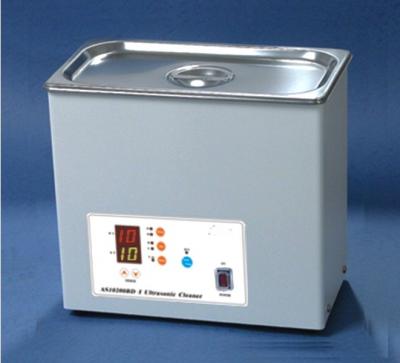Cleaner Ultrasonic
Ultrasonic cleaning uses high frequency sound waves to agitate in a liquid. Cavitation
bubbles induced by the agitation act on contaminants adhering to
substrates like metals, plastics, glass, rubber, and ceramics. This
action also penetrates blind holes,
cracks, and recesses. The intention is to thoroughly remove all traces
of contamination tightly adhering or embedded onto solid surfaces. Water or other solvents
can be used, depending on the type of contamination and the workpiece.
Contaminants can include dust, dirt, oil, pigments, rust, grease, algae,
fungus, bacteria, lime scale, polishing compounds, flux agents,
fingerprints, soot wax and mold release agents, biological soil like
blood, and so on. Ultrasonic cleaning can be used for a wide range of
workpiece shapes, sizes and materials, and may not require the part to
be disassembled prior to cleaning. Objects must not be allowed to rest on the bottom of the device during the cleaning process, because that will prevent cavitation from taking place on the part of the object not in contact with water.








We are also having company to offer ultrasonic cleaners, which use engineered ceramics to assure durability with superior power.
ReplyDeletePlease visit this site about your needs……..
http://electrosurgicalunit.net
http://vesselsealing.com
http://www.easesystems.org
Ultrasonic crusher is a kind of new method which can be used to calculus breaking on clinic. More about it, please see here: www.toption-china.com/products/ultrasonic-cell-crusher-ordinary-type. External ultrasonic calculus breaking can inflict focused ultrasound out of the body then make an ultrasonic fluctuation with certain strength.
ReplyDelete